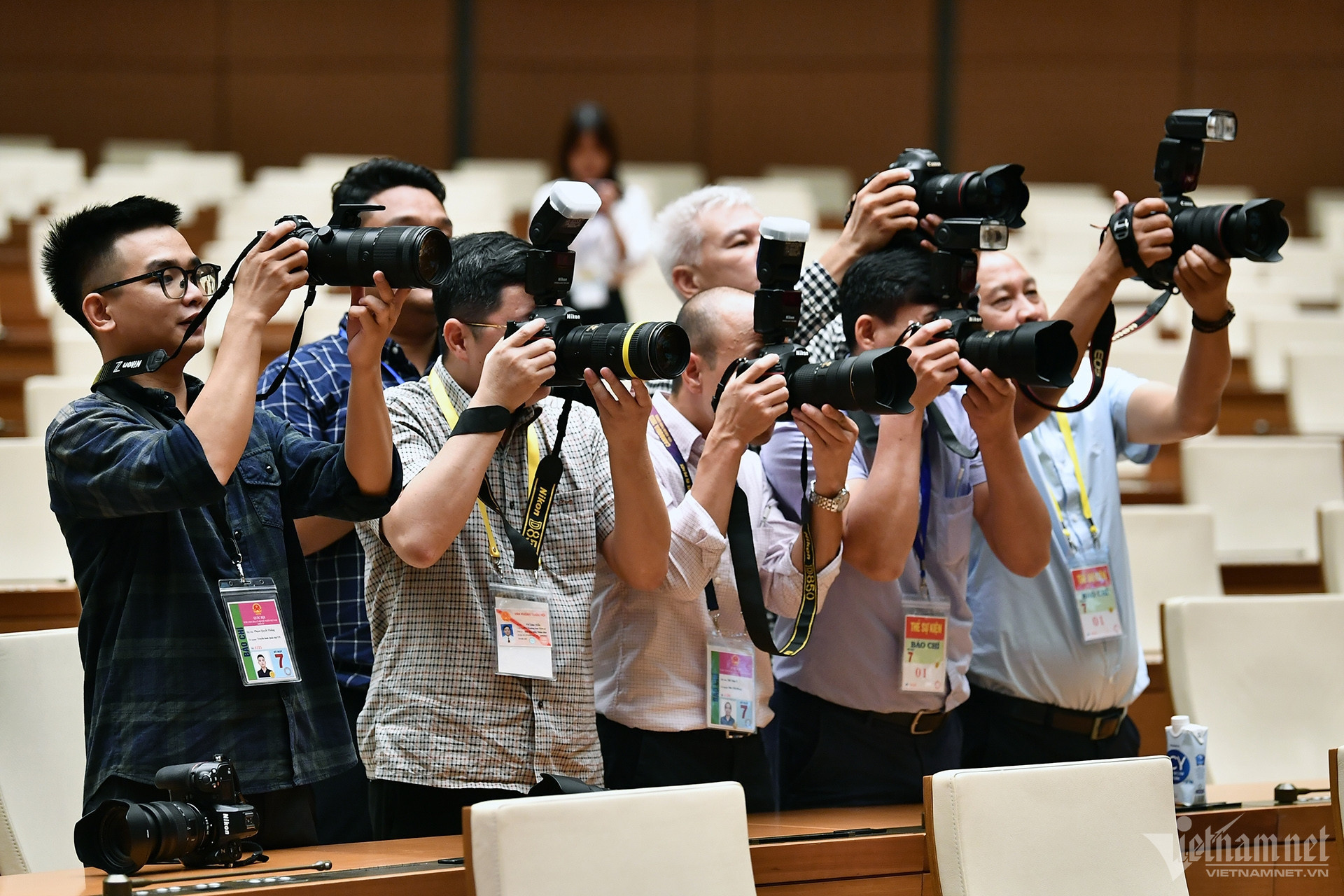
The Ministry of Finance (MOF) is collecting opinions for the draft law on corporate income tax (amended), under which the 15 percent tax rate will apply to press agencies, including ads on newspapers, a five percent decrease compared with the current tax rate. Meanwhile, the 10 percent tax rate has been proposed for print newspapers.
The 15 percent tax rate is believed to be unreasonable as press agencies are facing serious difficulties.
Reasonable preference needed
Nguyen Duc Loi, deputy chair of the Vietnam Journalist Association (VJA), said the viewpoint of VJA is to apply the same preferential tax rate for all kinds of newspapers, including e-newspapers, and radio and television broadcasting companies, not just print newspapers.
Press agencies need support as they are facing serious difficulties. One of the major sources of revenue comes from ads but revenue from ads is on the decline as a larger percentage of ads are now on foreign platforms such as Google, Facebook and other social networks.
In Vietnam, the problems faced by press agencies worsened after the Covid-19 pandemic, because companies paying for ads faced difficulties.
Press agencies are not pure businesses
Noting that the government has applied tax remission policies to some sectors including culture, sports and education, Loi proposed that tax incentives should also be offered to press agencies.
He stressed that press agencies are non-business units which have revenue and their main function is disseminating the Party and the State’s policies and guidelines, which is a very important task. They must not be considered as businesses.
“Our view is to tax 10 percent on all types of newspapers,” he said.
He added that the collection from press agencies doesn’t account for a large proportion of the state budget, and press agencies need support.
According to Loi, the association has not received official documents from its member agencies proposing a lower corporate income tax rate, but it knows the thoughts and worries of press agencies’ leaders through their speeches and complaints at recent forums.
The incomes of journalists are very low compared with the average income in society. VJA, as the professional social organization, needs to come forward and report the problem to state management agencies.
The National Assembly's Committee for Culture and Education had a working session with the Ministry of Information and Communications and came to an agreement on proposing the 10 percent tax on press agencies.
The press is an effective tool to disseminate information and policies of the Party and the State to people.
Therefore, if the state doesn’t ‘feed’ press agencies, it needs to create favorable conditions for them to earn money from the sources they can find. Overly high taxes will weaken the resources of press agencies.
Tax cut is a must, with no delay
Do Chi Nghia, member of the National Assembly’s Committee for Culture and Education, said that newspapers need preferential corporate income tax rates.
“The difficulties being faced by press agencies are clearly visible and it’s now the time to no longer postpone the plan on cutting taxes on the press,” he said.
Some analysts commented that press agencies are bearing unfair treatment. On one hand, they considered ‘public non-business units’ and required to carry out political and social tasks, and on the other hand, they are considered as businesses and required to pay tax.
Nghia stressed that the press played a very important role in both the struggles against invaders and protection of the fatherland in the past, and during the process of doi moi (renovation) initiated by the Communist Party.
Nghia stressed that press agencies deserve reasonable preferences. The development of the press is in line with the common interests of society and the Party's guiding viewpoint: that the press plays a pioneering role on the ideological front.
N. Huyen